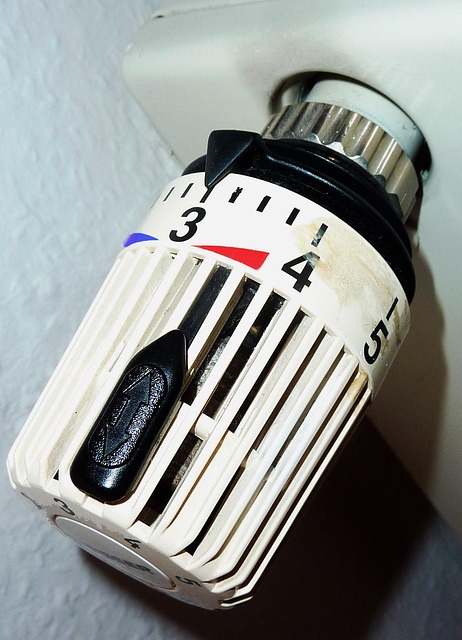Curious About Dental Implants for Seniors? Here’s What You Need to Know
Dental implants have become an increasingly popular option for seniors seeking to restore missing teeth and improve their quality of life. As we age, tooth loss becomes more common due to decay, gum disease, or injury. Unlike traditional dentures, dental implants offer a permanent solution that looks, feels, and functions like natural teeth. For many older adults, this treatment represents a significant investment in both oral health and overall wellbeing.

Dental implants have revolutionized tooth replacement options for seniors, providing a durable and functional alternative to traditional dentures. These titanium posts surgically placed into the jawbone create a strong foundation for replacement teeth. For older adults concerned about long-term dental health, implants offer numerous advantages over conventional solutions. They prevent bone loss, maintain facial structure, and allow for comfortable eating and speaking—all critical factors for maintaining quality of life in senior years.
Why Seniors Consider Dental Implants
Many seniors find themselves contemplating dental implants for compelling reasons. Tooth loss accelerates with age, affecting approximately 30% of adults over 65 who have lost all their natural teeth. Traditional dentures, while common, often create discomfort, slip during eating or speaking, and require messy adhesives. Implants eliminate these concerns by functioning like natural teeth roots.
Beyond practical considerations, dental implants offer significant health benefits for seniors. They prevent jawbone deterioration that typically follows tooth loss, helping maintain facial structure and appearance. This preservation of bone tissue can prevent the sunken facial appearance often associated with long-term denture use. Additionally, implants allow seniors to maintain a varied, nutritious diet without restrictions, supporting overall health and potentially extending longevity.
Psychological benefits also drive seniors toward implant solutions. Many report improved self-confidence and social engagement after receiving implants, as they no longer worry about embarrassing denture issues during conversations or meals. This enhanced quality of life aspect often proves just as valuable as the functional improvements.
Implant Options for Older Adults
Seniors have several implant options to consider based on their specific needs and oral conditions. Single tooth implants replace individual missing teeth without affecting adjacent healthy teeth. Each implant consists of a titanium post, an abutment, and a custom-made crown that matches surrounding natural teeth in color and shape.
For those missing multiple teeth, implant-supported bridges offer an excellent solution. Unlike traditional bridges that require grinding down adjacent teeth, these bridges anchor to implants, preserving healthy tooth structure. This option provides stability while using fewer implants than replacing each tooth individually.
All-on-4 or All-on-6 implants represent revolutionary options for seniors missing most or all teeth. These systems support full-arch prosthetics using just four to six strategically placed implants, often eliminating the need for bone grafting. Many seniors appreciate that these can frequently be placed and fitted with temporary teeth in a single day, though final prosthetics require additional appointments.
Overdentures combine traditional dentures with implant technology. These removable prosthetics snap onto two or more implants, dramatically improving stability compared to conventional dentures while remaining more affordable than full implant solutions. For many budget-conscious seniors, this hybrid approach offers an ideal middle ground.
Medical Considerations for Senior Implant Patients
Age alone rarely disqualifies someone from receiving dental implants. More important factors include overall health status and specific medical conditions. Successful candidates need sufficient bone density to support implants, though bone grafting procedures can address deficiencies. Good general health is essential, as healing capacity affects osseointegration—the process where bone fuses with the implant.
Certain chronic conditions common in seniors require special consideration. Diabetes, when well-controlled, doesn’t prevent implant success, but poorly managed diabetes can impair healing. Similarly, osteoporosis may necessitate additional planning, especially for patients taking bisphosphonate medications. Heart disease patients may require antibiotic prophylaxis before procedures, following current guidelines from cardiologists.
Medication reviews are crucial before implant surgery. Blood thinners may need temporary adjustment to prevent excessive bleeding. Some medications can affect bone metabolism or healing capacity. A comprehensive consultation with both dental and medical providers ensures proper coordination of care for seniors with complex health histories.
Cost of Dental Implants and Medicare Coverage
Dental implant costs vary significantly based on several factors. A single tooth implant typically ranges from $3,000 to $5,000, including the implant, abutment, and crown. Full-mouth reconstructions using multiple implants can range from $15,000 to $50,000 per arch. Additional procedures like extractions, bone grafts, or sinus lifts further increase costs.
| Procedure Type | Average Cost Range | What’s Included |
|---|---|---|
| Single Tooth Implant | $3,000-$5,000 | Implant, abutment, crown |
| Implant-Supported Bridge (3 teeth) | $5,000-$15,000 | 2 implants, abutments, bridge |
| All-on-4 Implants | $15,000-$30,000 per arch | 4 implants, abutments, full prosthesis |
| Overdentures | $5,000-$12,000 per arch | 2-4 implants, attachments, denture |
| Bone Grafting (if needed) | $400-$3,000 | Graft material, procedure |
Prices, rates, or cost estimates mentioned in this article are based on the latest available information but may change over time. Independent research is advised before making financial decisions.
Medicare coverage for dental implants is extremely limited. Traditional Medicare (Parts A and B) does not cover most dental procedures, including implants, as they’re considered elective. Coverage exists only in specific medical circumstances, such as jaw reconstruction following cancer surgery. Medicare Advantage plans (Part C) sometimes offer limited dental benefits, but comprehensive implant coverage remains rare.
Seniors have several alternative payment options. Dental insurance specifically designed for implants can reduce out-of-pocket expenses, though waiting periods often apply. Dental discount plans provide reduced fees at participating providers. Many dental practices offer payment plans, and third-party financing companies like CareCredit provide healthcare-specific credit lines. Some seniors also utilize Health Savings Accounts (HSAs) or Flexible Spending Accounts (FSAs) for tax advantages on implant expenses.
Recovery and Maintenance for Older Adults
The recovery timeline for dental implants may extend longer for seniors than younger patients. Initial healing takes approximately 1-2 weeks, during which soft foods are recommended. The osseointegration process, where bone fuses with implants, typically requires 3-6 months, potentially longer for older adults with slower healing capacity. Final restoration placement follows this healing period.
Proper maintenance ensures implant longevity. Daily care includes brushing with a soft-bristled toothbrush and flossing with implant-specific floss or water flossers. Regular professional cleanings every 3-6 months allow for early intervention if complications arise. Special instruments designed for implants prevent scratching titanium surfaces during professional maintenance.
Long-term success rates for dental implants in seniors remain impressive, with studies showing 90-95% success rates after ten years when properly maintained. This durability makes implants cost-effective over time compared to alternatives requiring frequent replacement. Many seniors report their implants functioning effectively for the remainder of their lives with proper care and regular dental supervision.
This article is for informational purposes only and should not be considered medical advice. Please consult a qualified healthcare professional for personalized guidance and treatment.




